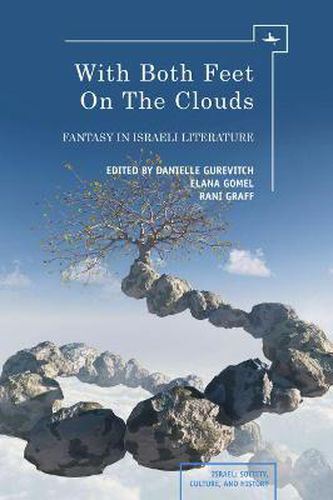Readings Newsletter
Become a Readings Member to make your shopping experience even easier.
Sign in or sign up for free!
You’re not far away from qualifying for FREE standard shipping within Australia
You’ve qualified for FREE standard shipping within Australia
The cart is loading…






Why do Israelis dislike fantasy? Put so bluntly, the question appears frivolous. But in fact, it goes to the deepest sources of Israeli historical identity and literary tradition. Uniquely among developed nations, Israel’s origin is in a utopian novel, Theodor Herzl’s Altneuland (1902), which predicted the future Jewish state. The Jewish writing in the Diaspora has always tended toward the fantastic, the mystical, and the magical. And yet, from its very inception, Israeli literature has been stubbornly realistic.
The present volume challenges this stance. Originally published in Hebrew in 2009, it is the first serious, wide-ranging and theoretically sophisticated exploration of fantasy in Israeli literature and culture. Its contributors jointly attempt to contest the question posed at the beginning: why do Israelis, living in a country whose very existence is predicated on the fulfilment of a utopian dream, distrust fantasy?
$9.00 standard shipping within Australia
FREE standard shipping within Australia for orders over $100.00
Express & International shipping calculated at checkout
Why do Israelis dislike fantasy? Put so bluntly, the question appears frivolous. But in fact, it goes to the deepest sources of Israeli historical identity and literary tradition. Uniquely among developed nations, Israel’s origin is in a utopian novel, Theodor Herzl’s Altneuland (1902), which predicted the future Jewish state. The Jewish writing in the Diaspora has always tended toward the fantastic, the mystical, and the magical. And yet, from its very inception, Israeli literature has been stubbornly realistic.
The present volume challenges this stance. Originally published in Hebrew in 2009, it is the first serious, wide-ranging and theoretically sophisticated exploration of fantasy in Israeli literature and culture. Its contributors jointly attempt to contest the question posed at the beginning: why do Israelis, living in a country whose very existence is predicated on the fulfilment of a utopian dream, distrust fantasy?